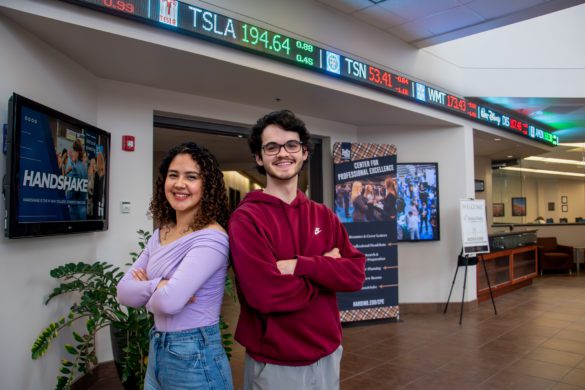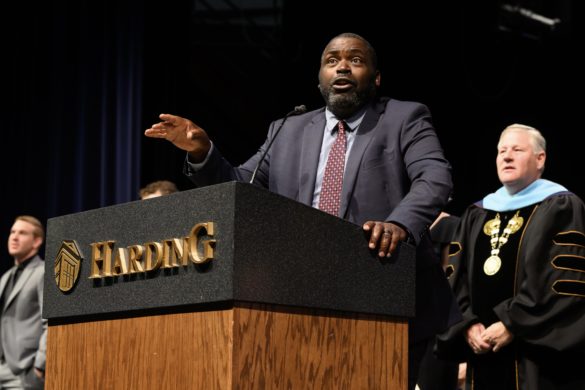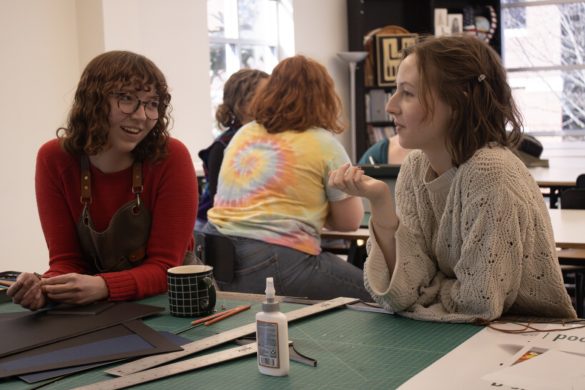Written by Elliott Coombes // Photo courtesy of Brinson Davenport
Senior Brinson Davenport was honored for his documentary, “The Ambassadors,” by the Broadcast Education Association Festival of Media Arts. The winners were announced Feb. 16. Davenport placed first in the short-form documentary category and was awarded “Best of Festival” for all student documentaries.
“The Ambassadors” told the story of Harding’s custodial staff and was inspired from a research project supervised by Dr. Jack Shock, distinguished professor of communication.
“In our senior research class, COMM 4150, everybody has to do a research project where they generate original primary data,” Shock said. “But Brinson said, ‘I want to make a documentary.’ That’s the first time in 30 years someone has done that, the very first time. And I said, ‘That sounds great, go for it,’ and he did, and he won this enormous national award for it.”
Over the course of three back-to-back nights, Davenport filmed and interviewed custodians from both the day and night shifts, and afterward spent about five days editing the footage.
“From a physical perspective, it was tough,” Davenport said. “Running around filming was really exhausting, but I could tell there was this feeling in the air that something special was happening and that motivated me.”
Davenport said the reaction he received from these interviews surprised him.
“You could also tell this was an opportunity that they didn’t get very often at all and maybe never,” Davenport said. “Just listening to how some of them responded, it was clear that sometimes they just don’t get much appreciation at all.”
Davenport said the custodians are rarely thanked for their work, which is something he believes is wrong. “One custodian we talked to said we were only the fourth people in the whole year to say thank you to him,” Davenport said. “When we said thank you for your work, he stared at us like a deer in the headlights for a second. It took him so off guard he said, ‘You’re the fourth people this year to say thank you to me.’”
Professor of communication Charles Bane complimented the strength of Davenport’s documentary.
“The great thing about documentary in general is it tells stories that often are not told,” Bane said. “ … I think that’s the best part of it is he found a story that needed to be told to remind people about everyone it takes to keep this university going.”
Bane also noted strength of Davenport’s documentary skills.
“He’s got the eye to know how to frame the shots, and he knows how to put the shots together for maximum emotional impact,” Bane said. “And I think that’s why he’s sort of leaning towards documentary.”
Davenport has been working with narrative short fiction films in the past, but documentary is a new step for him, he said.
“I think I’ve always had a natural bend toward realism, but I think because of the nature of a documentary being reality, it’s easier to make an impact with documentary than maybe a narrative short film,” Davenport said. “… I think it brings more honor to the subjects of the film when it’s a documentary, because it’s a personal story.






